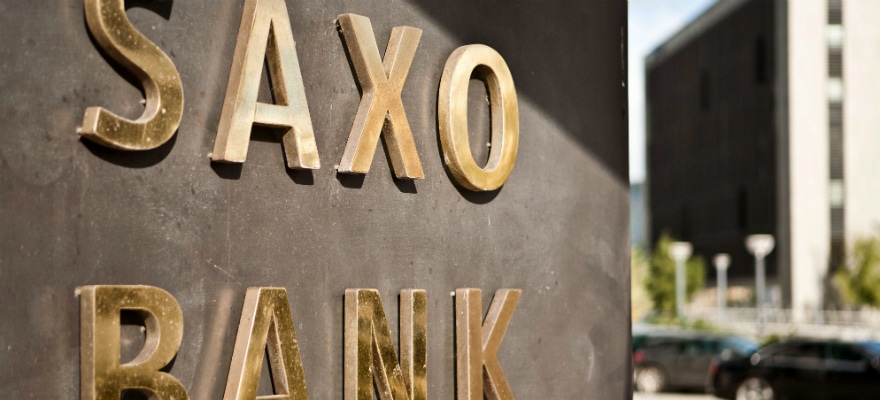Danish multi-asset brokerage Saxo Bank has been cleared by the Danish Maritime and Commercial High Court in a case against the company filed by a client who lost money on the 15th of January 2015. On that day the Swiss National Bank unexpectedly removed the currency floor under the EUR/CHF exchange rate, that resulted in a dramatic move for a major FX pair.
Between 10:30 and 10:41 CET on the 15th of January 2015 after a particular client’s order was closed by the system at around 1.1972, the execution price was later revised lower due to poor Liquidity conditions.
Saxo Bank Group’s CFO Steen Blaafalk recalled the day in a conversation with Finance Magnates: “It was regrettable that the Swiss National Bank without notice removed the peg of the Swiss franc versus the euro back in January 2015, which led to significant losses for many investors. This was a historically big move in a major currency. January 15 2015 was not a good day for a number of our clients and hence not a good day for Saxo Bank.”
What happened at the time was that the banks which had been providing liquidity to Saxo Bank collectively pulled out of the market. The trading systems were put under tremendous amount of stress since such an event had never been recorded in history.
Mr Blaafalk elaborated on the matter: “It is important to emphasize that we have followed standard practice for extreme market situations like the one in January 2015 ensuring clients as objective prices as possible. Furthermore, the Danish FSA concluded after a thorough investigation in 2015, that Saxo Bank’s calculations of corrected prices were not in conflict with investor protection legislation or Saxo Bank's obligations to act fairly and professionally towards our clients.”
“It is always unfortunate to meet clients in a courtroom, but we are pleased that the court's decision was in line with our expectations, and that we now have the court’s word that we acted in accordance with our business terms,” the CFO of Saxo Bank Group explained.
The Danish Maritime and Commercial High Court is a unique institution where the judges are selected specifically for each case. Three of the judges are regular judges, and two judges are experts in the field that is being disputed by the parties.
The decision is likely to weigh in favor of Saxo Bank in other cases related to the same matter, particularly for those in Denmark and in Europe.
“We have several pending court cases following the Swiss event. The court has set a clear direction for pending cases, and the fact that the court’s conclusion is in line with our expectations only reinforces what we have been arguing from the beginning: that the price corrections were fair, correct and in line with our business terms,” said Mr Blaafalk.
As of this day, Saxo Bank is a in a better position to recover outstanding balances from traders that were hit by the SNB crisis. The firm reported losses due to negative client balances that surpassed $100 million in the aftermath of the Black Swan event. After this court ruling, the company is more likely to slowly recover some of its losses over time.


















